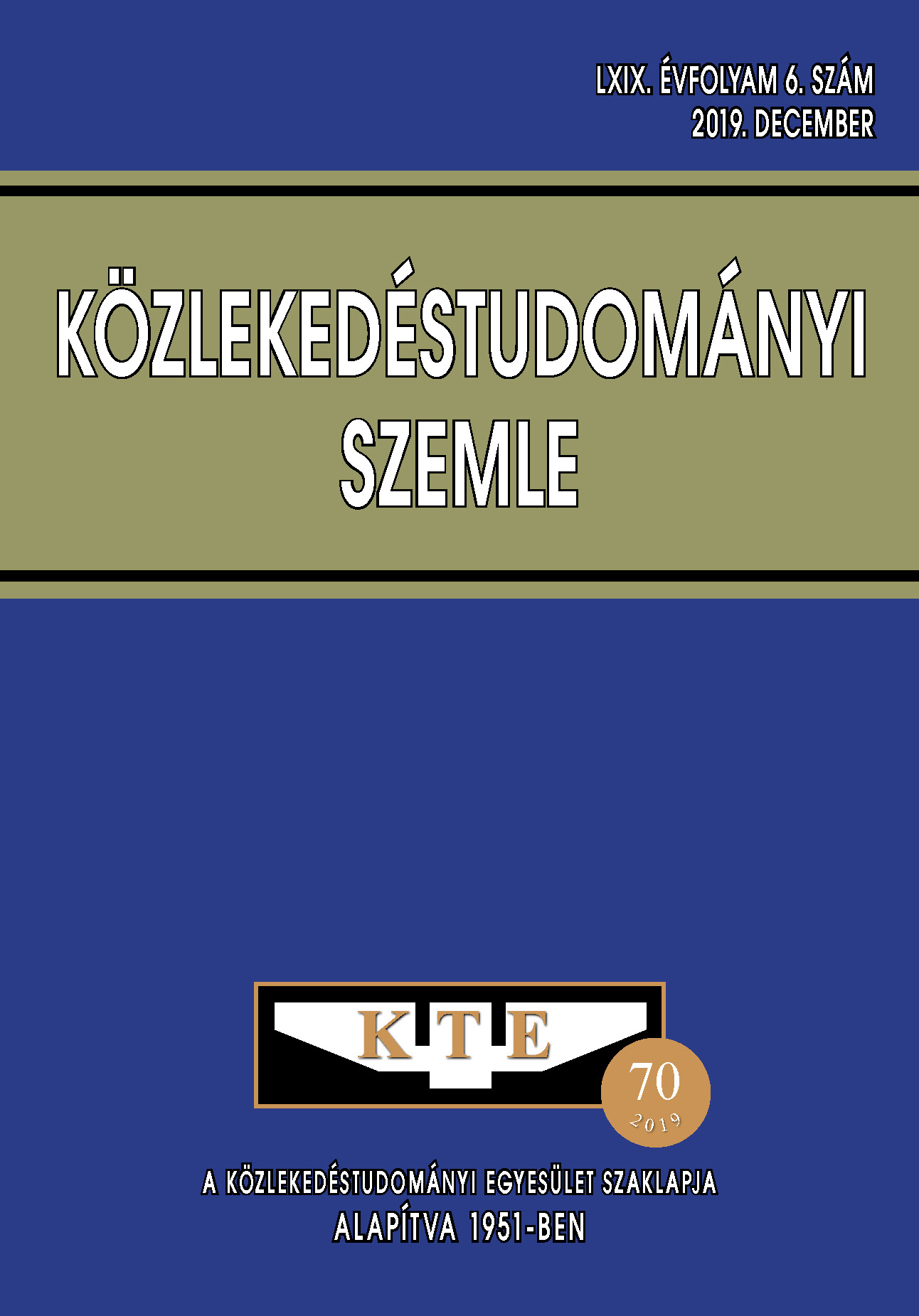Utasélmény a jegyértékesítésben és az utastájékoztatásban: közlekedési Service Design
Absztrakt
Miért érzi magát az utas elveszve, amíg utazik, mit ért meg a körülötte zajló eseményekből? Versenyképességi korlát-e a közlekedés „bonyolultsága”? A HKIR (Helyközi Közösségi Közlekedési Információs Rendszer) az ország közösségi közlekedésének eddigi legkomplexebb informatikai projektje, amely bevezetése után évtizedekre határozza majd meg az utasélményt, és keretezi a helyközi közlekedés szereplőinek együttműködését. A következőkben megtudhatjuk, hogy milyen alapelvek mentén építik fel a szerzők a rendszert, és hogy jutnak el ezekhez?
Hivatkozások
Németh Á., Gyúri A.: Felhasználóbarát felületek tervezése, Masterfield Oktatóközpont, 2017
Handel, S: Classification of Emotions, http://www.theemotionmachine.com/classification-of-emotions/
Dr. Tóth-Maros D.: Vasúti személyszállítási szerződéstan, Baross Gábor Oktatási Központ Budapest, 2017.
Catalanotto, D: A Tiny History of Service Design (Blurb, 2018, online elérhető itt: https://service-design.co/book-a-tinyhistory-of-service-design-368ed603797c )
http://iris.cs.aau.dk/tl_files/volumes/volume07/no1/04_bjerknes_p73-98.pdf
Card, S.K., Moran, T.P., Newell, A.: The Psychology of Human-Computer Interaction, Lawrence Erlbaum Associates,
Shostack, G. Lynn. "Designing Services that Deliver", Harvard Business Review, vol. 62, no. 1 January - February 1984, pp 133–139
Norman, D.A., Draper, S.W.: User Centered System Design; New Perspectives on Human-Computer Interaction, Lawrence Erlbaum Associates, 1986 DOI: http://doi.org/ddn6
Rowe, P: Design Thinking, MIT Press, 1987
Alexander, C: A Pattern Language – Towns, Buildings, Constructions, MIT Press, 1977
Brown, T.: Change by Design: How Design Thinking Transforms Organizations and Inspires Innovation, Harper Collins, 2009
Bhavnani, R., Sosa, M.: IDEO: Service Design (A) INSEAD, 2006
https://www.adaptivepath.org/ideas/the-anatomy-of-an-experience-map/ (2011.11.31)
Németh Á.: UX A MÁV-STARTnál, HWSW Mobile! konferencia, 2015
Németh Á.: A JÉ projekt megújuló belső rendszerek felhasználói felületei – terepkutatási és tesztelési eredmények (belső dokumentáció, 2017)
Németh Á., Balog Z. T.: A MÁV-START szolgáltatásainak ergonómiai problémái az utas életciklusának függvényében (UXStratégia, 2018)
Földesi F.: Az EGYJEGY rendszer fejlesztési irányainak meghatározása a potenciális felhasználók igényei alapján, diplomamunka, Budapesti Műszaki Egyetem, 2018
ISO: ISO 9241-210:2010 Ergonomics of Human-system interaction – Part 210: Human-centred design for interactive systems (ISO, 2010)
Ridson, C., Quattlebaum, P.: Orchestrating Experiences: Collaborative Design for Complexity, Rosenfeld Media, 2018
Lego: Introduction to Lego Serious Play, Open source version The LEGO Group, 2010 (online: https://www.lego.com/en-us/seriousplay/background, 2019. 02. 11.)
https://index.hu/gazdasag/2018/04/12/mav_keses_2017/ (2018.04.12)
Az elektronikusan megjelenő cikkek nyílt hozzáféréssel rendelkeznek (OJS), online ingyenesen elérhetők és letölthetők. A cikkek szerzőit nem terheli megjelentetési vagy kiadási költség (APC). Felhasználóknak joguk van a cikkek olvasására, letöltésére, másolására, kinyomtatására, valamint azokban való keresésre, vagy a teljes szöveg linkkel történő megosztására.
A szerzőknek nyilatkozniuk kell arról, hogy beadványukat korábban nem tették közzé más folyóiratban, a pénzügyi támogatás feltüntetésre került és a hivatkozások listája teljes és pontos, beleértve az URL-ek és a DOI-k specifikációját is (ha rendelkezésre állnak). A cikktervezet beadásakor minden szerző jóváhagyja a benyújtott változatot. A szerzők garantálják, hogy a cikk az ő eredeti művük. A szerzők kötelesek részt venni a szakértői értékelés folyamatában, követni a bírálók tanácsait, betartani az előírt határidőket, és amennyiben előfordulnak, kötelesek visszavonni a benyújtást vagy kijavítani a hibákat.
Minden beadott cikket szakértői értékelés alá kerül, ahol a szerkesztők független értékelést kérnek legalább egy szakértőtől, ügyelve arra, hogy a bíráló(k)nak ne legyen összeférhetetlensége a szerzőkkel. A végső döntést a főszerkesztő hozza meg, aki figyelembe veszi az értékeléseket és a szerkesztők javaslatait. A szerkesztők és a lektorok bizalmasan kezelik a beadványt.
A kiadó és a szerkesztők elkötelezettek a magas etikai normák betartása mellett, és megakadályozzák azokat a publikációkat, amelyekben kutatási visszaélés történt. Az ilyen etikai kérdésekben a COPE irányelveit követik.
A szerzők fenntartják a szerzői jogokat, és megadják a folyóiratnak az első közzétételi jogot a Creative Commons Licenc alapján (https://creativecommons.org/licenses/by-nc-nd/4.0), amely lehetővé teszi mások számára, hogy megosszák a művet, elismerve a mű szerzőségét és a folyóiratban való első közzétételt.
A folyóirat archiválja az összes megjelent cikket, és a folyóirat tulajdonosa, a Közlekedéstudományi Egyesület továbbra is üzemelteti az adatbázist abban az esetben is, ha a folyóirat kiadása megszűnik.















